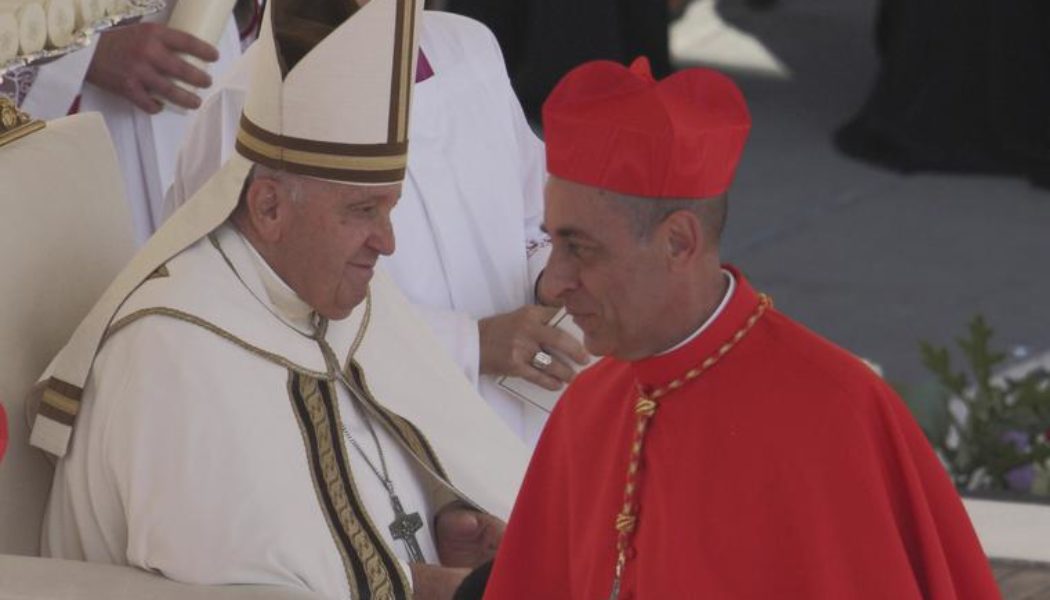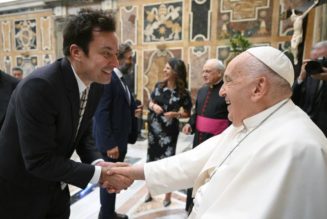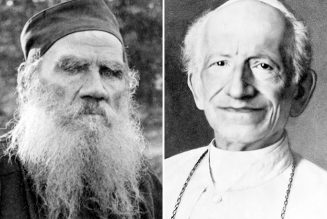
When Pope Francis appointed Cardinal Víctor Manuel Fernández to be the prefect of the Dicastery for the Doctrine of the Faith (DDF) in July, he took the unusual step of writing a letter to accompany the appointment.
“What I expect from you is certainly something very different,” he wrote.
The Holy Father got all that, and then some.
No prefect has ever conducted himself quite like Cardinal Fernández now does, frantically trying to contain the fractures opened up by Fiducia Supplicans.
On Dec. 18, Fiducia Supplicans was released by the DDF. The document declared that “what has been said in this Declaration regarding the blessings of same-sex couples is sufficient” and thus “no further responses should be expected about possible ways to regulate details or practicalities regarding blessings of this type.”
The prefect then began a flurry of interviews offering commentary upon his own work. That didn’t seem to do the trick, as bishops all over the world expressed their extreme dismay.
So, on Jan. 4, Cardinal Fernández issued a sort of Fiducia Supplicans 2.0, a lengthy “press release” about the declaration. This particular “no further response” was almost half as long as the original document.
The status of Fiducia Supplicans is a “declaration” of the DDF, issued with papal approval, thereby making it part of the ordinary papal magisterium. In 2021, another DDF document, styled a responsum, was also issued with papal approval. Helpfully, for comparative purposes, it addressed the same subject, namely blessings for same-sex couples. Unhelpfully for the current moment, it taught the complete opposite, flatly prohibiting what Fiducia Supplicans permits. So while “no further responses” were promised, Fiducia Supplicans always invited further elaboration. Having contradicted the same Pope, on the same subject, at the same level of magisterial authority, something more would have to be said. Hence cometh the “press release” from the prefect.
The release is not a magisterial document at all. It is not a declaration, nor a responsum, not even an airborne papal press conference. It has no authority whatsoever. While certainly of interest as to the mind of the prefect, it cannot officially clarify the teaching of Fiducia Supplicans; it cannot resolve the contradictions and confusions. Only another DDF document could do that, which itself would be put alongside Fiducia Supplicans (2023) and the responsum (2021).
Is that where Cardinal Fernández is headed in his mandate to be “very different”?
Minimalist Approach
In Fiducia Supplicans, Cardinal Fernández made clear his mandate to “foster the reception of the Holy Father’s teaching.” In thus serving the Pontifex Maximus, the prefect takes a rather minimalist approach, stating that Fiducia Supplicans is not “heretical, contrary to the Tradition of the Church or blasphemous.”
It is startling that the prefect thought it necessary to issue a press statement insisting that the DDF is not teaching heresy or promoting blasphemy. Memory fails to recall an example of Cardinal Joseph Ratzinger doing the same during his more than 23 years as prefect. It was, only months ago, assumed that the Dicastery for the Doctrine of the Faith was neither heretical nor blasphemous.
Given that many bishops are questioning that, we have an inversion of the previous order of things. It used to be that the doctrinal office would clarify orthodox teaching and then others would defend their orthodoxy. Now, the dicastery pronounces itself, and when local bishops object, the prefect protests his orthodoxy. This is “certainly something very different” indeed.
The apparent point of the press release is that the Dicastery for the Doctrine of the Faith, realizing that it has a very weak case, is offering a way out of its own disarray. The prefect is asking for as little as possible. As long as bishops don’t accuse the dicastery (and Holy Father) of doctrinal error, then, in a masterpiece of ecclesial jargon, “prudence and attention to the ecclesial context and to the local culture could allow for different methods of application.” Translation: Stop saying that Fiducia Supplicans is heretical and then bishops can do whatever they want, including declaring the Dec. 18 document a dead letter in practice.
Couples and Unions
Notably, the press release declines to address the principal question raised these past weeks: What, or whom, is being blessed? Two individuals, a couple, or the union?
The 2021 responsum made it clear that blessings could not be conferred on same-sex couples living in an apparent sexual union, even though their relationship would include some good things alongside the sinful elements. The whole point of Fiducia Supplicans is to change that, but the press release becomes very shy on that central point.
“The real novelty of this Declaration … is not the possibility of blessing couples in irregular situations,” the press release says. If that is not the novelty, then the 2021 responsum holds, and the DDF has caused global confusion and upset for no reason.
Responsible commentators have tried at length to make the relevant distinctions between a pair of individuals, two members of a larger group, couples and unions. There is clear and real disagreement. Given that the DDF uses the terms, a definition would be helpful. Cardinal Fernández declines to give one in the press release.
Blessings That Aren’t Blessings
To the contrary, the press release offers a concrete example that abandons the main thrust of Fiducia Supplicans entirely. The press release notes that blessings for “irregular couples” should be only a “few seconds,” without any ritual. The press release speaks of both “couples” and sometimes “two people” without clarifying the difference.
The press release says that the priest “simply asks the Lord for peace, health and other good things for these two people who request it.” That does not appear to be about a “union” at all.
But immediately the press release adds that, “at the same time, one asks that they may live the Gospel of Christ in full fidelity and so that the Holy Spirit can free these two people from everything that does not correspond to his divine will and from everything that requires purification.”
The blessing thus appears to be for the “union,” the “irregularity” of which is acknowledged by the prayer for “purification.”
For example, if a priest is preparing a cohabiting couple for marriage, it would seem entirely proper to bless them using a prayer that invoked divine assistance on their efforts to live chastely. But could such a blessing be given if there was no desire to live chastely, or even defiance of the moral norm?
With complexity and confusions abounding, Cardinal Fernández offers an example. Thus the same prefect whose declaration explicitly ruled out any formulae now offers a sample formula in his press release (emphasis in original):
“Since some have raised the question of what these blessings might look like, let us look at a concrete example: [L]et us imagine that among a large number making a pilgrimage a couple of divorced people, now in a new union, say to the priest: ‘Please give us a blessing; we cannot find work, he is very ill, we do not have a home and life is becoming very difficult: May God help us!’
“In this case, the priest can recite a simple prayer like this: ‘Lord, look at these children of yours, grant them health, work, peace and mutual help. Free them from everything that contradicts your Gospel and allow them to live according to your will. Amen.’ Then it concludes with the sign of the cross on each of the two persons.
“We are talking about something that lasts about 10 or 15 seconds. Does it make sense to deny these kinds of blessings to these two people who ask for them? Is it not more appropriate to support their faith, whether it be small or great, to assist them in their weaknesses with a divine blessing, and to channel that openness to transcendence which could lead them to be more faithful to the Gospel?”
Here we see the use of both “two people” and “couple” to describe the same situation. The “couple” do not request a blessing on their union at all, neatly avoiding the key issue. They ask for health, housing and work. The prayer, though, implies a “union” by asking to “free them” from that which “contradicts the Gospel.”
Most remarkably, it is not a blessing at all. It is a prayer said for “two people” or a “couple,” followed by an individual blessing for each of them. For all the talk about a new understanding of blessings in Fiducia Supplicans, Cardinal Fernández does not bless in this model prayer and then blesses the individuals in the customary manner from time immemorial.
If that is what Cardinal Fernández had in mind all along, there would be no need for Fiducia Supplicans at all. The 2021 responsum envisioned the same thing. The press release, for this week at least, is the prefect distancing himself from his own document.









